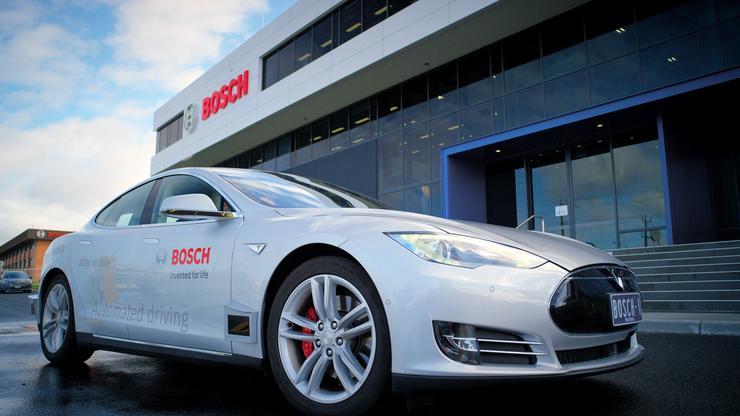
Lexus is trialling a range of connected-vehicle technologies on public roads in Victoria, the car manufacturer announced today.
The trial uses two Lexus RX 450h F Sport SUVs that communicate with each other and roadside infrastructure over the Telstra 4GX network.
The connected vehicle safety systems include emergency braking alerts, in-vehicle speed limit compliance warnings, right-turn assist for vulnerable road users and warnings when surrounding vehicles are likely to violate a red light.
Alerts will also be given to drivers when vehicles further down the road have stopped suddenly or are braking hard. As well as the safety gains, the technology can also promote smoother traffic flow, help alleviate congestion and reduce emissions and fuel consumption.
“Specialised equipment fitted to the vehicles adds to their capabilities by enabling them to relay critical safety information between each other and networks at super-high speed in situations where every millisecond counts,” Lexus Australia said in a statement.

Communication happens over optimised 4G mobile networks between vehicles and between vehicles and traffic management centres.
Previous trials in Australia have used Wi-Fi-like 802.11p technology for short range communications. This trial will be the first in Australia to make use of short-range 5.9 GHz radios based on advanced 4G Cellular ‘vehicle-to-everything’ technology – with a pathway and compatibility to future 5G solutions, Telstra said.
Trials started in late 2018 to test the technology at the Lexus test track in the Melbourne suburb of Altona, and on-road testing will soon be on metropolitan and regional roads in Victoria.
"The essence of this connected-vehicle trial is about amplifying our ability as drivers, combining and coordinating the skills and strengths of the human and the machine – a seamless blend that extracts the best from both," said Lexus Australia chief executive Scott Thompson.
"This vital project is all about saving as many lives as we can as soon as we can and making the experience of driving more fun as we make it safer. It is part of our company's global commitment and dedication to safety first and our pursuit of a global vision to lower traffic fatalities to zero and to reduce congestion, emissions and fuel consumption," he added.

Costing $3.5 million, the trial is the largest recipient to date of the Victorian Government’s $9 million Connected and Automated Vehicle Trial Grants Program.
The grant program is managed by VicRoads and funded by the Transport Accident Commission through its Towards Zero Action Plan.
“Technology already plays a pivotal role in road safety and that is only going to increase over time – that’s why it is important we continue exploring the lifesaving potential of connected and automated vehicle technologies through trials such as these,” said TAC director road safety Samantha Cockfield.
In the fast lane
The trial is one of a number relating to connected and autonomous vehicles taking place on public roads in Victoria.
In January, Bosch announced it was about to commence testing of “the first vehicle developed in Australia with self-driving capabilities” on “high speed rural roads” in the state.
The German electronics and engineering giant was awarded $2.3 million from the same program to carry out the on-road trial of the Bosch TAC, based on a Tesla Model S.

The Bosch trial was approved under the Victorian Government’s recently introduced Automated Driving System (ADS) permit scheme. The ADS scheme came into effect in September last year, authorising individuals and companies to test automated vehicles of SAE level 3 driving automation or higher on public roads.
VicRoads has also partnered with Transurban to investigate how automated vehicles interact with road infrastructure on the Monash-CityLink-Tullamarine corridor. The trial, which featured connected and automated vehicles from BMW, Mercedes, Tesla and Volvo tested how car features like lane keep assist, adaptive cruise control and traffic sign recognition respond to tunnels, road works, electronic speed signs and congestion.
Join the CIO Australia group on LinkedIn. The group is open to CIOs, IT Directors, COOs, CTOs and senior IT managers.
